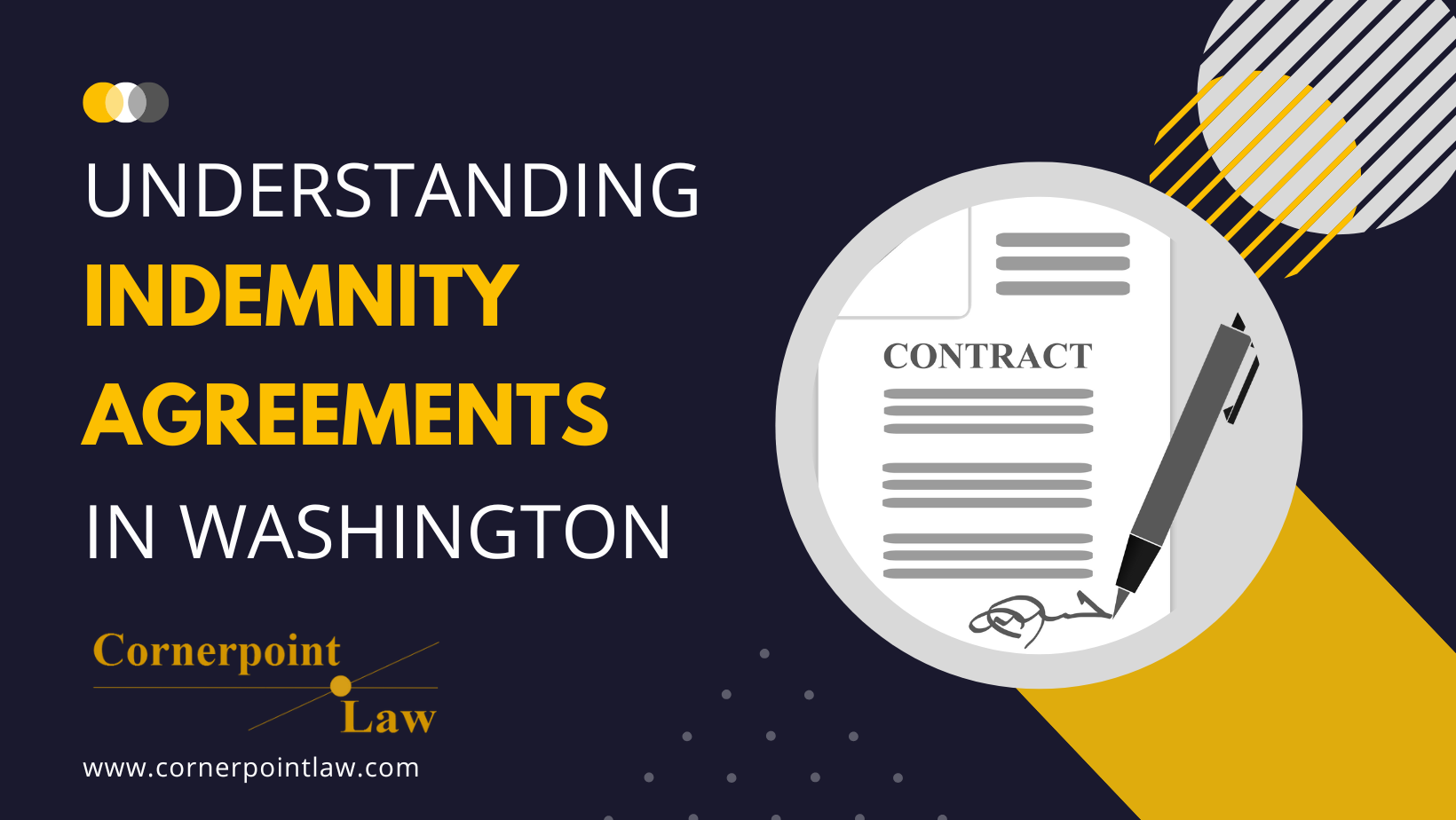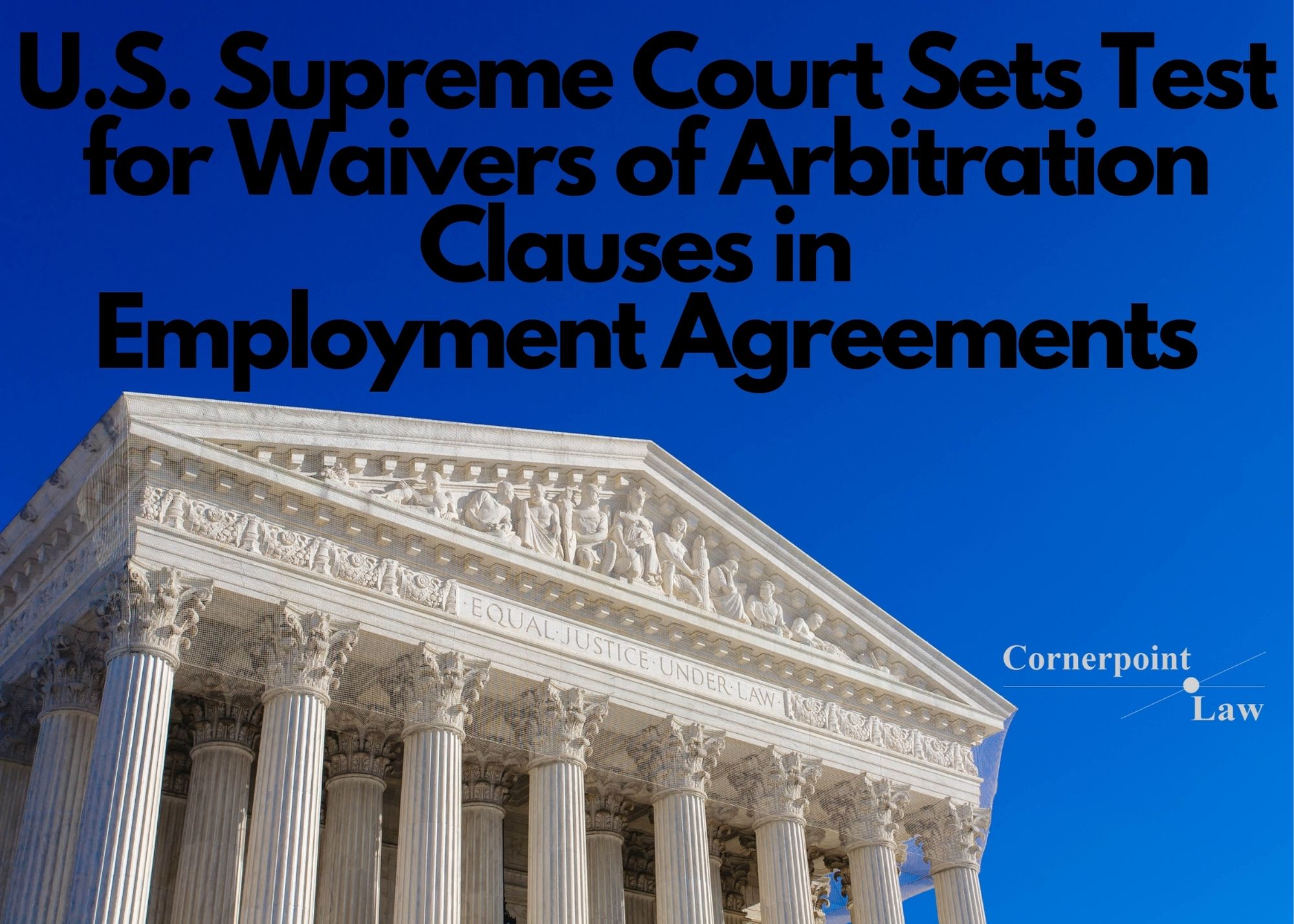Non-Compete Agreements: Expiration Date and Appellate Fate
August 28, 2020
Unauthorized use and/or duplication of blogposts without express and written permission is strictly prohibited. Excerpts and links may be used, provided that full and clear credit is given, and with appropriate and specific direction to the original content.
The author of this post can be reached by phone at 206-693-2718 or by email.
Time Waits For No One
By Stacia Hofmann
Cornerpoint Case Pops are dedicated to summarizing relevant, new cases — and their business and risk management lessons — in bite-size posts.
Non-compete agreements1 were a hot legal topic when January 1, 2020 rolled around. That’s when Washington’s new non-compete laws, RCW Ch. 49.62, went into effect. Under the new laws, non-compete agreements are only enforceable if the employee earns at least $100,000/year (adjusted annually for inflation).
The new laws also declare that a non-compete provision lasting more than 18 months after termination of employment is unreasonable unless the employer can show by clear and convincing evidence that a longer duration is necessary to protect the business.
Time flies, but lawsuits move slowly, so it’s entirely possible that parties may be involved in court litigation when the restrictive time frame in a non-compete agreement expires. In fact, by default, King County Superior Court gives parties a year from the time a civil case is filed to the time of trial to prepare, so unless a lawsuit is filed right after employment termination, the parties could very well still be in the pre-trial process.
Parties to a lawsuit over a non-compete agreement can ask for money damages, and/or ask the judge to issue an order enforcing (or not enforcing) the agreement. Let’s take a look at why time is particularly important when money damages are not involved.
The Case: Majors v. Multicare Health System, Washington Court of Appeals, Division II, No. 52414-7-II (Unpublished, January 28, 2020)
Case Background

As a condition of employment, a doctor signed a non-compete with a health care organization, agreeing that, upon termination, he would not practice medicine within 20 miles from his clinic for a period of two years. In September 2017, the health care organization terminated the doctor’s employment.
The doctor asked to be released from his non-compete, but the employer refused. Six months after termination, the doctor filed a lawsuit, asking for a judicial release from the non-compete. He also (initially) asked for money damages.
Specifically, the doctor asked the judge to find the contract unreasonable and unenforceable as written, but the health care organization asked the judge to find the contract reasonable and enforceable. The judge ruled against the doctor and in favor of the health care organization, finding the non-compete reasonable and enforceable.
The doctor appealed in September 2018 (one year into the restrictive period), and in the process of doing so, dismissed his initial claims for money damages.
But the case did not make its way to the judges at the appellate court until after September 2019. By then, the two-year restrictive period had clearly expired.
Because the non-compete period was over and because neither party had a claim for money damages, there was nothing left for the appellate judges to decide. It no longer mattered if the non-compete had once been enforceable or not — this issue was moot — so the appellate judges declined to make any decision about that. The trial judge’s order that the agreement was enforceable did not need to be reviewed for its correctness just for the sake of deciding who was right.
Key Takeaways
It’s important to remember that the appellate process is a system for checks and balances. It’s not the best course of action in every case, or even in most cases, but it exists to make sure the law is being applied, and in some instances created, correctly. Even in pre-pandemic times, the appellate part of the court process could take well over a year just to reach the first level.
Time is not always integral to a case, but non-compete agreements are different from many other types of contracts because they have a time component tacked onto the end of the parties’ relationship. By default, that time is now pre-set at no more than 18 months – not very long when compared to the potential length of the court process.
Time waits for no one, and it is entirely foreseeable, if not likely, that if a case over a typical non-compete is appealed now that we have the new laws, there will not be a decision until after the restrictive period of the non-compete has ended. And by then, if there is no debate over money damages, then there is no question that the law needs to answer up on appeal.
Finally, although this time tangle makes it hard for parties to manage their risks and choose a course of action, waiting for money damages to occur just to make sure that the case can be heard on appeal may not be the best approach. Waiting can result in financial losses that may have been avoided by a trial judge’s order, and, in many instances, attempting to mitigate those losses early on may have more value than any appeal.
For this very reason, it’s important to have an attorney assist with the risks and benefits of different litigation strategies. I help businesses and individuals understand how to use contracts and solve contract problems, including non-compete agreements. Email or call me to see if Cornerpoint can help with your business contract or employment law questions.
This blog is for informational purposes only and is not guaranteed to be correct, complete, or current. The statements on this blog are not intended to be legal advice, should not be relied upon as legal advice, and do not create an attorney-client relationship. If you have a legal question, have filed or are considering filing a lawsuit, have been sued, or have been charged with a crime, you should consult an attorney. Furthermore, statements within original blogpost articles constitute Stacia Hofmann’s opinion, and should not be construed as the opinion of any other person. Judges and other attorneys may disagree with her opinion, and laws change frequently. Neither Stacia Hofmann nor Cornerpoint Law is responsible for the content of any comments posted by visitors. Responsibility for the content of comments belongs to the commenter alone.
- Grammatically, the law prefers “noncompete” agreements and “noncompetition” agreements rather than “non-compete” agreements, but I find it phonetically difficult without a hyphen, so I am using a hyphen. ↩




